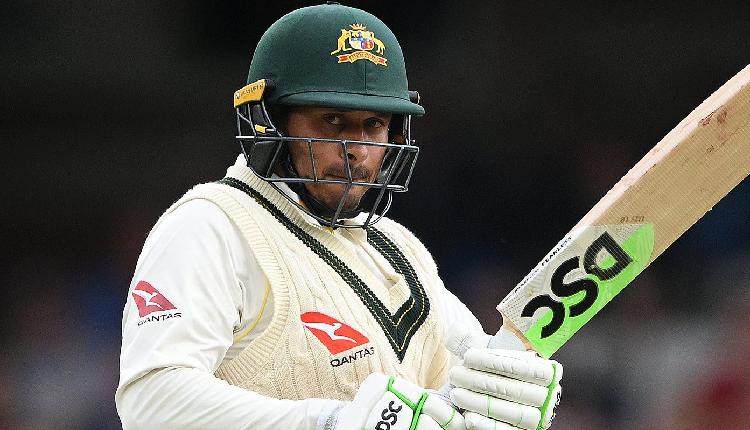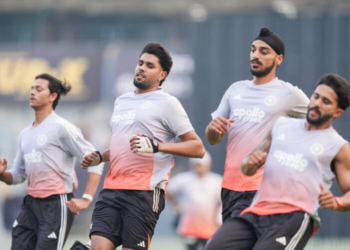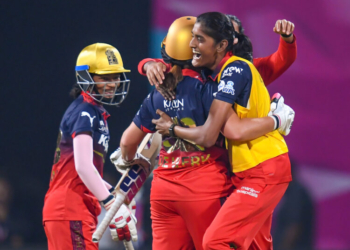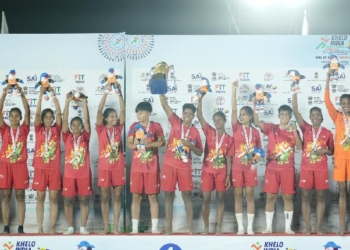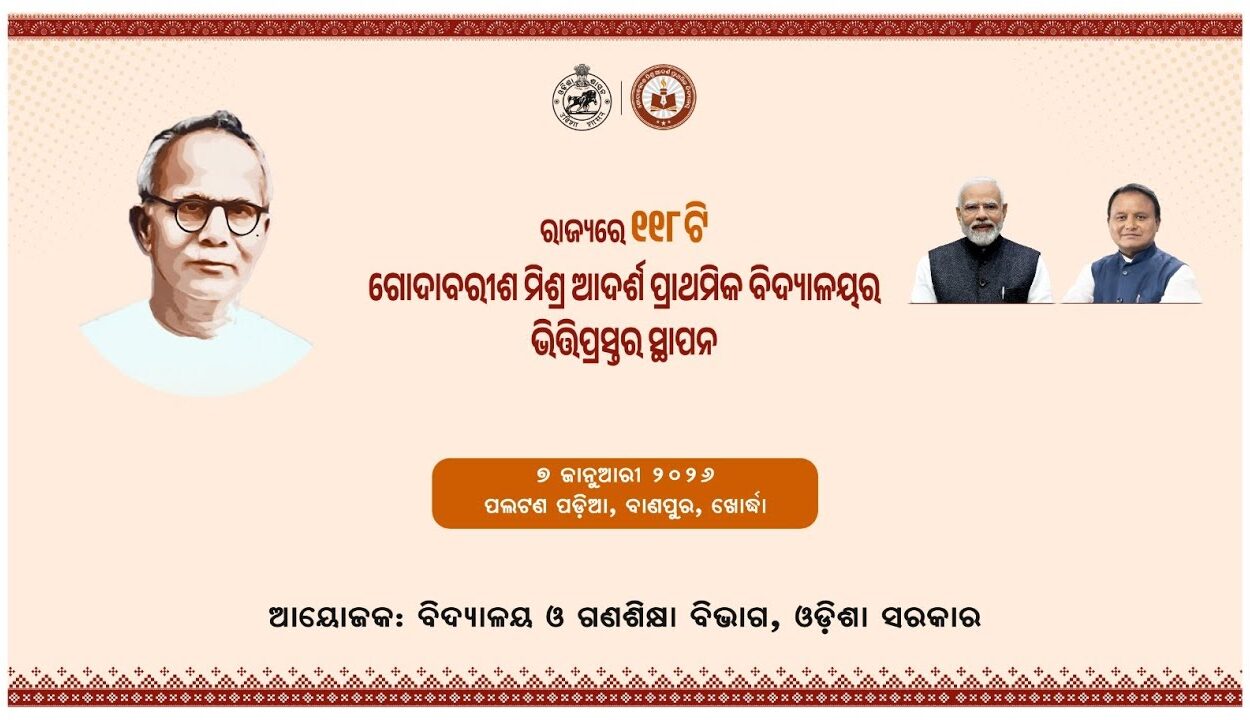New Delhi: Australian cricketer Usman Khawaja has received a reprimand from cricket’s governing body, the International Cricket Council (ICC), over his armband protest during the First Test.
Khawaja, an opening batsman, wore a black armband during Australia’s 360-run victory in Perth, defying the ICC’s move to ban his premeditated shoe protest.
The 36-year-old had originally lashed out at the ICC for censoring him and had vowed to continue promoting messages of support for civilians in Gaza. Khawaja had handwritten slogans such as “Freedom is a human right” and “All lives are equal” on his footwear.
However, the ICC warned him that he would face sanctions if he wore those shoes during the match, citing rules prohibiting the display of personal messages related to politics, religion, or race.
While the messages on his shoes were covered with tape, Khawaja made a statement by wearing a black armband around his left arm during the Test. This move has resulted in a reprimand from the ICC for his first breach of the rule.
“Usman Khawaja has been charged for breaching Clause F of the Clothing and Equipment Regulations, which can be found on the ICC Playing Conditions page. The sanctions for a breach of the regulations are outlined in Appendix 2,” an ICC spokesperson said.
“Usman displayed a personal message (armband) during the 1st Test Match against Pakistan without seeking the prior approval of Cricket Australia and the ICC to display it, as required in the regulations for personal messages. This is a breach under the category of an “other breach” and the sanction for a first offence is a reprimand,” the statement added.
Khawaja’s protest had its roots in a broader context, with him criticizing the ICC’s interference and expressing a commitment to continue delivering messages of humanitarian appeal. The cricketer had previously delivered an impassioned plea on social media, defending his right to speak up for those who lack a voice and emphasizing the equality of all lives.
The ongoing saga has set the stage for potential fireworks during the upcoming Boxing Day Test at the MCG, should Khawaja choose to persist with his black armband protest. The ICC’s regulations on personal messages emphasize considerations of political, religious, or racial causes, and each case is evaluated based on its unique circumstances.
Khawaja, undeterred by the ICC’s stance, has vowed to fight and seek approval for his messages. The controversy not only raises questions about the balance between personal expression and ICC regulations but also highlights the broader issue of using sports as a platform to address social and political concerns.
(IANS)




